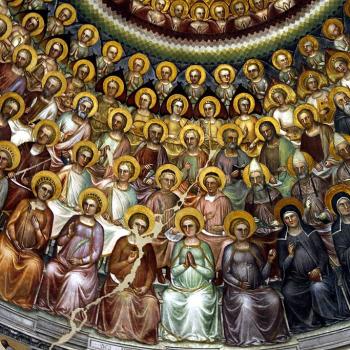Editor's Note: This article is part of an online symposium, "Does Seminary Have a Future?" hosted at Patheos this month. Read other perspectives here.
In a recent and widely-read column for Patheos, SMU Professor Frederick Schmidt said that seminary education is a mess. Some of his criticisms are right on target and supported by evidence:
Schmidt says that seminaries are unselective. Many are highly unselective. The median acceptance rate of Protestant seminaries is 88 percent, which means that half accept more than 88 percent of those who apply to their Masters programs. Almost anyone who has a college degree can gain admission to some seminary.
Schmidt says that student debt is crippling. Yes, it is, and research at Auburn's Center for the Study of Theological Education shows that both the percentage of students who have debt and the amounts of it have been increasing at rates much higher than inflation. Some graduates are catastrophically indebted; they can't afford to take the positions for which their theological education prepared them.
Schmidt points out that seminaries are financially stressed, leading them to admit students unselectively and to permit or even pressure students to borrow more than they should. Analyses of seminary finances by researchers at Auburn and the staff of the Association of Theological Schools suggest that this statement applies to an increasing number of schools each year.
Schmidt charges that churches are lowering their educational standards. Mainline Protestant denominations such as my own, the Presbyterian Church (U.S.A.), which requires all its clergy to have a degree from an accredited seminary, are indeed permitting persons with very limited educational preparation to perform all the functions of ordained ministers. Elsewhere, I called this a symptom of "devolution," the tendency of the mainline denominations to cope with their loss of hegemony by giving up on both their institutions and their standards.
That said—that Schmidt is correct about these messy aspects of seminary education—much of his "eulogy" is itself a mess. His analysis and prescriptions fail on two counts:
Schmidt's analysis relies on conventional wisdom that doesn't line up with facts. For instance, Schmidt says that faculty, because of their "quest for academic respectability," "lack [of] any real affinity for the church," and doctoral formation in schools that have replaced "theological categories" with the study of religion, are to blame for producing students who are "poorly grounded" in the faith and in the skills of congregational leadership.
Auburn research on present and future faculty paints a different picture. A minority of seminary faculty members is trained "all over," in hundreds of theology and religion programs around the world, but the majority comes from just twenty-five programs, all located in institutions that have programs of ministry preparation. Most of these top supplier-doctoral programs use some version of the ancient four-fold patterns of theological studies (Bible, theology, history, practical studies) as their basic structure. Programs in church-related universities are supplying an increasing percentage of seminary faculty members, and those in independent private universities are producing fewer. (None of the top suppliers is a public university.)
Further, seminary faculty are almost all religiously observant—they attend or lead worship regularly—and they spend significant additional time in church and denominational activities beyond their home congregations. And most report that their main focus is teaching, not scholarly publication. There are reasons for concern about the preparation of future seminary faculty, but it is difficult to make the case from data that the failures of contemporary theological education are chiefly the fault of faculty who are detached from the church and favor research on religion over the teaching of theology. (See the studies of seminary faculty and their doctoral preparation here. See also a report on a survey of seminary graduates who have been serving in ministry for five or more years. They say that the most valuable part of their professional preparation was in the "classical" fields of Bible and theology.)




